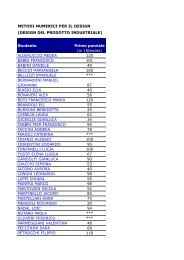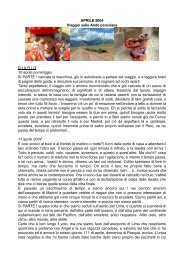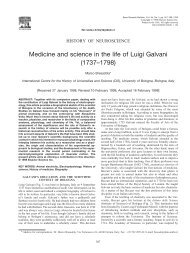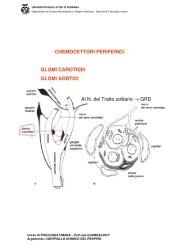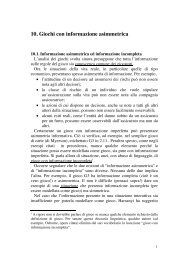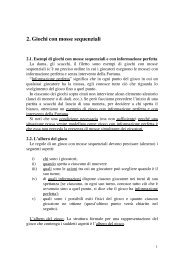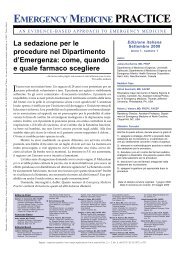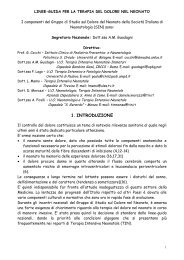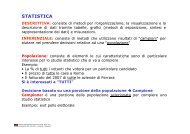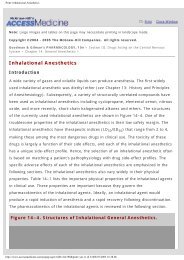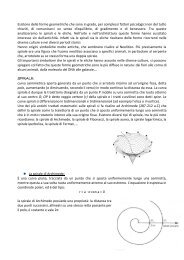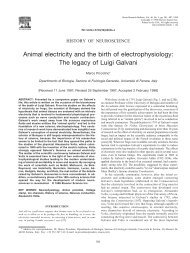Implicit-Explicit Runge-Kutta schemes for hyperbolic systems ... - utenti
Implicit-Explicit Runge-Kutta schemes for hyperbolic systems ... - utenti
Implicit-Explicit Runge-Kutta schemes for hyperbolic systems ... - utenti
Create successful ePaper yourself
Turn your PDF publications into a flip-book with our unique Google optimized e-Paper software.
Hyperbolic <strong>systems</strong> with relaxation<br />
Introduction<br />
Many physical models are described by <strong>hyperbolic</strong> <strong>systems</strong> with relaxation of the <strong>for</strong>m<br />
∂tU + ∂xF (U) = 1<br />
R(U), x ∈ R,<br />
ε<br />
where U = U(x, t) ∈ R N , F : R N → R N , F ′ (U) has real eigenvalues and admits a basis of<br />
eigenvectors ∀ U ∈ R N and ε > 0 is called relaxation parameter.<br />
Examples<br />
Gas dynamics<br />
Shallow water<br />
Discrete kinetic models<br />
Extended Thermodynamics<br />
Hydrodynamical models <strong>for</strong> semiconductors<br />
Traffic models<br />
Granular gases<br />
...................<br />
Related problems: convection-diffusion-reaction, low Mach number/diffusive limits<br />
⊲ Purpose of the talk is to give an overview of <strong>Runge</strong>-<strong>Kutta</strong> time discretization methods<br />
<strong>for</strong> such <strong>systems</strong>, with particular emphasis on the treatment of stiff regimes.<br />
2



